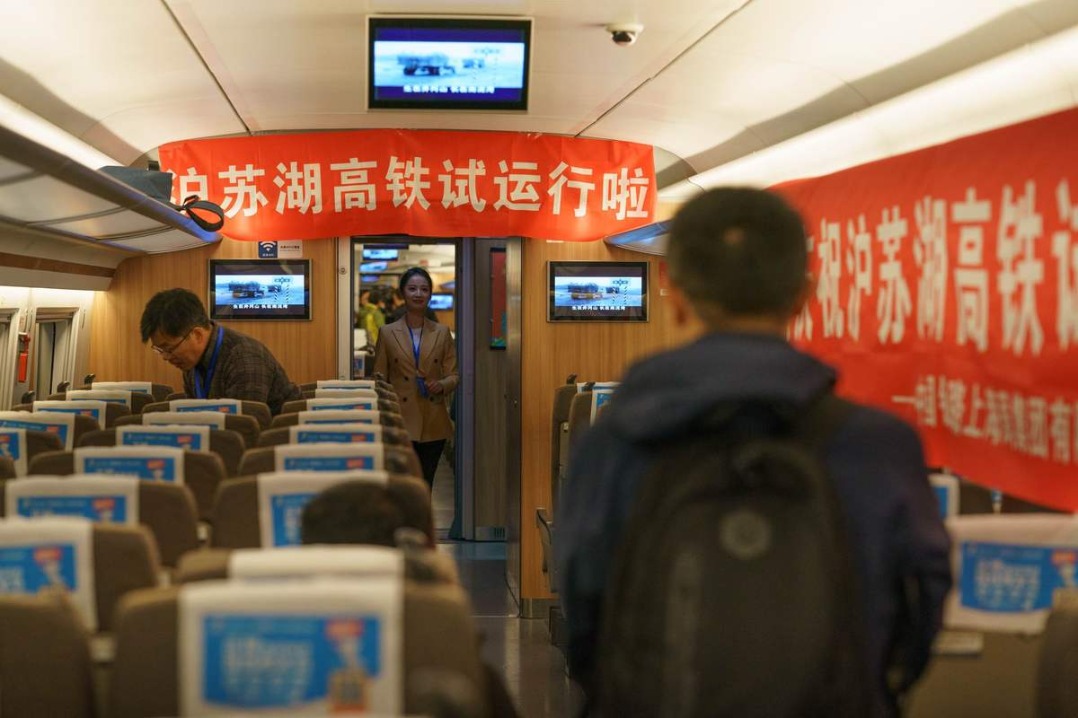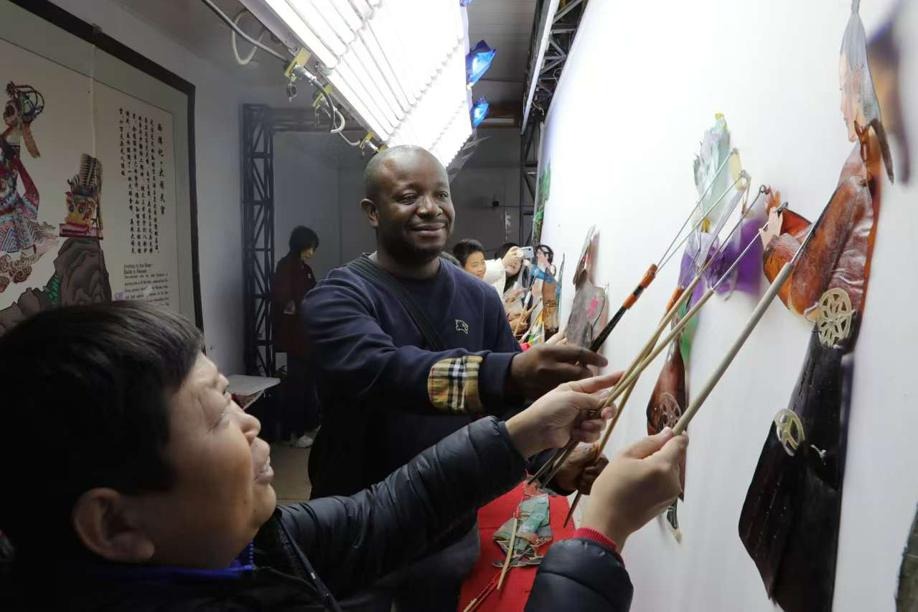Finding distinctive policies crucial


Global South countries should find development paths that suit their own national conditions and distinct from those of Western developed countries, to advance their own modernization visions, Chinese and foreign scholars and officials said on Friday.
They made the remarks at the Fifth Think Tank Forum on National Governance in Developing Countries held in Beijing, which is themed Joining Hands to Advance the Modernization of the Global South. They also praised China's efforts to achieve Chinese-style modernization, which benefits the development of Global South countries.
Emad Ahmed Mohamed Alazrak, chairman of the El Tahrir Center of Egypt, said that global governance issues are a matter of life and death for Global South countries, as they urgently need development, modernization and mastery of modern technology.
He emphasized that this requires all countries, particularly those in the Global South, to unite and persistently engage in joint cooperation.
Alazrak criticized developed countries for using technological monopolies and exclusivism to serve their own interests at the expense of others since World War II.
He stressed that the international community, especially the Global South, urgently needs to achieve new global governance goals — participation by all parties, fostering cooperation rather than conflict, exchanging interests rather than monopolizing and exploiting, dialogue rather than confrontation, and win-win rather than zero-sum international relations.
Zhang Shiyi, director of the Sixth Division of the Institute of Party History and Literature of the Communist Party of China Central Committee, said that the current global economic growth is sluggish, with wars and military conflicts rampant in some areas, noting that some countries are adding fuel to the fire while most countries want peace and hope to find the right development path.
"China is taking on the historical responsibility ... providing new options for humanity to achieve modernization, which brings hope to a world undergoing great turmoil," he said.
Youness Abouyoub, chief of Governance and State-Building Section at the United Nations Economic and Social Commission for Western Asia, said that countries such as Somalia, Sudan and Yemen face enormous development challenges due to conflicts, resource scarcity and the impact of the COVID-19 pandemic.
All these negative factors have hindered these governments' efforts to establish sound governance systems and enhance economic resilience, he said.
Abouyoub called for better use of policy tools to improve these countries' independent and sustainable development capabilities.
John Quelch, distinguished professor of Social Science at Duke Kunshan University, said that China's achievement over the last 40 years — lifting 800 million people out of poverty — obviously gives the nation great credibility among Global South countries.
He stressed that unlike the historical colonial powers or the hemispheric dominance implicit in the United States' Monroe Doctrine, China has emphasized economic partnership, mutual respect and the absence of territorial ambitions.
"China's initiatives have been a vital force in the modernization of the Global South already," said Quelch, pointing to the China-proposed Belt and Road Initiative, which involves many infrastructure transformations, such as the Mombasa-Nairobi Standard Gauge Railway in Kenya.
"All of these initiatives have created trade, accelerated job creation and fueled regional connectivity," he said.
Nuea Ataata, the Republic of Kiribati Public Service Office human resource officer, shared the national conditions and development path of her country as a Global South member in the Pacific Ocean.
She said China and Kiribati share the same principles of helping each other and being actively involved in helping oneself as well.
Wu Zhicheng, director and professor of the Institute of International Strategy at the Party School of the Central Committee of CPC, said that refining and promoting the spirit of the Global South is an important measure to jointly advance the modernization of the Global South, as this group is no longer a "bystander" in international affairs but has become an important force in the international community.
Ishida Ryuji, associate researcher at the School of Humanities at Shanghai Jiao Tong University, said that the current development of Global South countries is not a challenge to Western countries but an exploration of a path different from that of the West. He criticized the developed countries in the West for being unable to imagine a development model that does not seek hegemony, despite China's unparalleled achievements in peaceful development over the past 75 years.
- Record broken: China's parcel network reaches unprecedented heights
- Wuzhen hosts 2024 Yangtze River Delta Digital Development Conference
- Exhibition spotlights power of Chinese, French female scientists
- China's real-world medical data pilot project makes major progress
- Beijing braces for cold wave, rain, snow
- Hong Kong celebrates 100 days of locally born panda twins




































